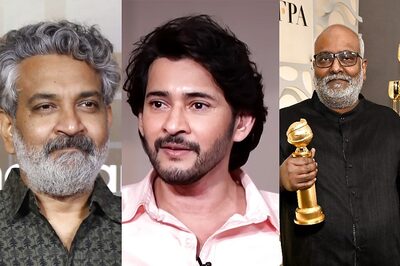
views
New Delhi: Three Indian Army officers have been let off with a warning over allegations of gold trafficking while they were UN peacekeepers in the Democratic Republic of Congo. The allegations, first revealed by the BBC, were part of a wider investigation carried out by the UN.
The UN has kicked off an investigation into the allegations that Indian peacekeepers traded food and even military intelligence with Rwandan Hutu rebels in return for gold. The rebels were involved in the Rwandan genocide.
Kemal Saiki, spokesman for the UN mission in Congo, confirmed media reports of the allegations made against Indian peacekeepers in eastern Congo's troubled North Kivu province.
The investigation is one of a series, including a probe authorised by UN Secretary-General Ban Ki-moon, into the 17,000-strong UN mission in Democratic Republic of Congo.
Despite last year's historic polls, the vast, mineral-rich Central African country still suffers from violence at the hands of armed militias, foreign rebel groups, and its own army, particularly in the east. Large areas of North Kivu along the border with neighbouring Rwanda are under the control of the Democratic Forces for the Liberation of Rwanda (FDLR), a Hutu-dominated rebel movement.
The FDLR is composed in part of former Interahamwe militia who fled to Congo after taking part in the genocide in Rwanda that killed some 800,000 Tutsis and moderate Hutus in 1994. In Congo, they are accused of grave human rights abuses in areas under their control, and recent fighting between the foreign rebels and Tutsi-dominated Congolese army brigades have driven more than 165,000 people from their homes since February, according to the UN World Food Programme.
"We acknowledge there were accusations. Following these allegations, our procedures kicked in and an investigation by the Office for Internal Oversight Services (OIOS) was launched," Ban Ki-moon had said ealier.
However, an accusation that three Indian officers had illegally detained and assaulted a Congolese trader for selling them fake gold dust was the only charge the UN decided had sufficient evidence.
Those soldiers have been let off with a warning.
Critics of the UN will argue that this is exactly what they expected and proves that allegations, no matter how serious, seldom result in the disciplining of the troops under its command. Human Rights Watch has accused the United Nations of stalling on earlier investigations, involving Pakistani troops.
The UN operation in Congo is credited with organising the country's first democratic polls in 40 years but tarnished by allegations ranging from sexual abuse to killings.
Past allegations
Last year, an OIOS report on similar allegations against Pakistani peacekeepers in Congo's northeastern Ituri district found the troops had indeed colluded with a local armed group to smuggle gold out of the country. Another investigation into the alleged torture and killings of Ituri militia members by Bangladeshi UN soldiers is currently under way.
Punishment of peacekeepers found to have committed crimes while serving with the United Nations is left at the discretion of their home countries. Human rights campaigners say national armies have a poor record of disciplining their troops.
Anneke Van Woudenberg, a Congo researcher with New York-based Human Rights Watch, said that while she could not confirm the latest allegations of misconduct, ongoing abuses in Congo were hurting UN efforts worldwide. "These guys should be held up to the highest standards, if international peacekeeping is to work," she said.
(With inputs from agencies)


















Comments
0 comment